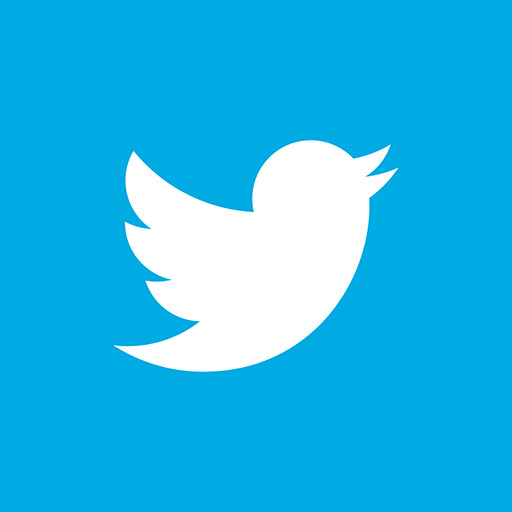Chicago Cheapster Dave on How Frugality is Liberating
By Dave Fried
 Greetings Cheapsters! I was pretty excited when Jackie asked me to share some of my insights on the sixth sense that is cheapness. I never thought the way I lived had any kind of ethos, but looking back, I see a lot of patterns in my spending and saving habits. The building block of my cheapness is a strong distaste for the working world. The notion that I’m compulsorily extending myself five days a week, for someone else’s profit, really gets me down. Far too many of us are working too many hours at jobs that want to extract as much out of us as they can. Far too many of us have growing lists of dreams and personal goals that get pushed aside because of our jobs. And my cheapness is the only thing I can do right now to fight the cycle many of us are in. I’d rather have time than money. What good is having money if you never have any time to enjoy it? A high paying job so I can afford a luxury house or a low paying job so I can sleep on a foldout couch in a basement? You can save all the cash in the world, but you can never get back a moment of time.
Greetings Cheapsters! I was pretty excited when Jackie asked me to share some of my insights on the sixth sense that is cheapness. I never thought the way I lived had any kind of ethos, but looking back, I see a lot of patterns in my spending and saving habits. The building block of my cheapness is a strong distaste for the working world. The notion that I’m compulsorily extending myself five days a week, for someone else’s profit, really gets me down. Far too many of us are working too many hours at jobs that want to extract as much out of us as they can. Far too many of us have growing lists of dreams and personal goals that get pushed aside because of our jobs. And my cheapness is the only thing I can do right now to fight the cycle many of us are in. I’d rather have time than money. What good is having money if you never have any time to enjoy it? A high paying job so I can afford a luxury house or a low paying job so I can sleep on a foldout couch in a basement? You can save all the cash in the world, but you can never get back a moment of time.
The less I have to work, the more time I have. The more time I have, the more I create. The more I create, the happier I am.
It’s simple: Time + Self- Determination = Anarchy
However, I have taken away something from the workaday world. Treat your personal finances as if your  life were a business model. This may seem like a contradiction to all the shit I’ve talked about working, but it’s really not. A business shouldn’t be spending more money than it makes, correct? And you and I are no different. Businesses are always trying to do things cheaply and efficiently – and so should you! That’s why they pay so little! It’s easier nowadays to track your expenses because so many people use debit cards for everything. So when you get a bank statement at the end of the week or month, it really puts things into perspective. Small things such as coffee, eating lunch out, and cigarettes that add up over the month. Its easier to say, “Wow i spend XXX a week on YYY..I don’t really need to do that”. I think that’s a big building block of cheapness. The little things that add up, and knowing that $2-3 here and there adds up quickly over a month. So look at your bank statements once a month, track patterns in your spending, and adjust accordingly. So your IN can be greater than your OUT. I’m no finance expert, but I’m pretty sure that’s the universal goal of all commerce.
life were a business model. This may seem like a contradiction to all the shit I’ve talked about working, but it’s really not. A business shouldn’t be spending more money than it makes, correct? And you and I are no different. Businesses are always trying to do things cheaply and efficiently – and so should you! That’s why they pay so little! It’s easier nowadays to track your expenses because so many people use debit cards for everything. So when you get a bank statement at the end of the week or month, it really puts things into perspective. Small things such as coffee, eating lunch out, and cigarettes that add up over the month. Its easier to say, “Wow i spend XXX a week on YYY..I don’t really need to do that”. I think that’s a big building block of cheapness. The little things that add up, and knowing that $2-3 here and there adds up quickly over a month. So look at your bank statements once a month, track patterns in your spending, and adjust accordingly. So your IN can be greater than your OUT. I’m no finance expert, but I’m pretty sure that’s the universal goal of all commerce.
Here are some of the ways I get the most from my earned dollar:
I’m not too particular about a lot of things, and I’m easy to please. My favorite beer is whichever one I’m drinking at the moment. I’m just as happy on a dingy futon as I would be on a leather sofa. I can make the best of sleeping in a gravel pit or a plush hotel room. Not being too fussy about things makes it easier to float through life.
 I’ve made a personal commitment to not buy such non-essential things. There are a lot of things that are convenient and made readily available when it is perfectly simple and easy to create those things yourself. For example, I have a thermos of coffee rather than pay $3 for a coffee drink. Once you do that, it is hard not to notice how hard advertisements try to get your attention. Have you ever seen the same ad over and over and you think to yourself, “I’m still never going to buy that!” We get back a little piece of ourselves when advertising falls on deaf ears. Only we know what is best for us and what our needs are. No market research or PR firm can compete with that, and shit do they ever try. I want advertisers out of everything, but especially out of my own head space. Fuck a catchy jingle. My mind is my own.
I’ve made a personal commitment to not buy such non-essential things. There are a lot of things that are convenient and made readily available when it is perfectly simple and easy to create those things yourself. For example, I have a thermos of coffee rather than pay $3 for a coffee drink. Once you do that, it is hard not to notice how hard advertisements try to get your attention. Have you ever seen the same ad over and over and you think to yourself, “I’m still never going to buy that!” We get back a little piece of ourselves when advertising falls on deaf ears. Only we know what is best for us and what our needs are. No market research or PR firm can compete with that, and shit do they ever try. I want advertisers out of everything, but especially out of my own head space. Fuck a catchy jingle. My mind is my own.
When it comes to dinner, I never know what I want ’till it’s actually dinner time. Rarely in my household do we have a specific night for a specific food. So to maximize my options, I only grocery shop for the next couple of meals. I go to the produce market every few days, just buying small amounts of what I want to use that day or the next. It cuts down on food waste, lets you decide what you want to make while in the store, and you eat fresher food. I’m not a huge fan of doing big grocery shopping once a month the way some families do.1 Generally, things that can stay edible for a month on a shelf aren’t the kinds of things I like to eat anyway. I do want to stress that canned or frozen foods aren’t awful. Time and necessity are important when you’re raising a family. However, only buy food you know you’re going to use. Not to say  don’t take a chance on that 1,000-year-old tofu at the Chinese market, but once you open it -even if it smells like feet – eat it. When you recoil in disgust of its flavor, just think to yourself how good you’ve got it that you even have the option of trying it.
don’t take a chance on that 1,000-year-old tofu at the Chinese market, but once you open it -even if it smells like feet – eat it. When you recoil in disgust of its flavor, just think to yourself how good you’ve got it that you even have the option of trying it.
A lot of cheapsters love to find the cheap eating. A place with half-price donuts after 5 p.m., the place that doesn’t charge for pizza if it fell on the floor… And I like those places just as much as you do. But there is nothing cheaper than an evening at home! If you say the following phrase to any one of your friends, you will automatically save a ton of money: “Hey (friend’s name) – Do you want to come over, split a 12-pack and  (you fill in the blank)?” You’ll cut your spending in half and possibly double your beer intake in one night. Some good and free activities are: riding bikes, having a Black Flag-style TV party, inventing a new sport in the backyard, sitting on the front porch, watching rented movies from the library, pointing out erotic-looking clouds, reading ‘zines, and going on really long walks. This can be done even cheaper if you replace a 12-pack of beer with bottles of tap water (or homemade booze) – but that’s your choice to make! Freedom just got a little bit cheaper!
(you fill in the blank)?” You’ll cut your spending in half and possibly double your beer intake in one night. Some good and free activities are: riding bikes, having a Black Flag-style TV party, inventing a new sport in the backyard, sitting on the front porch, watching rented movies from the library, pointing out erotic-looking clouds, reading ‘zines, and going on really long walks. This can be done even cheaper if you replace a 12-pack of beer with bottles of tap water (or homemade booze) – but that’s your choice to make! Freedom just got a little bit cheaper!
Here is a little info about me: I live on the South Side of Chicago. I write the ‘zine Black Carrot. I like beer, black metal, and bear porn.
Get in touch: Black Carrot |Box 830, Chicago, IL 60690 | USA
1 There is a growing concern in society these days about access to fresh produce. Some neighborhoods have every fast food branch and no place to get fruits and vegetables. Cheap food now, health problems later? We can only hope the trend for healthy, local, sustainable food production continues. (And maybe puts fast food out of business?) Wishful thinking!




